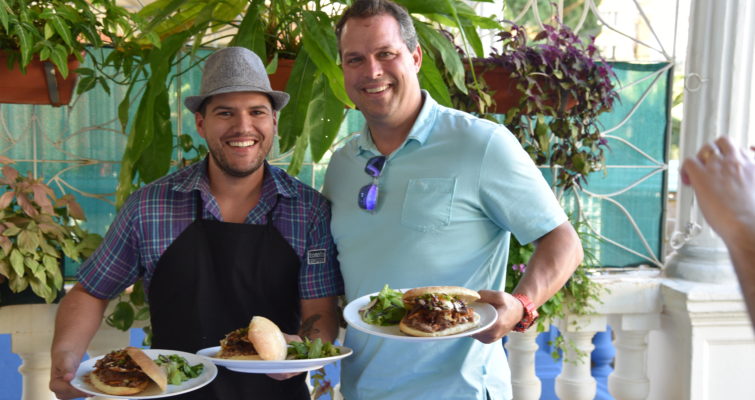
Cuba under the new Trump regulations
In my last post, I talked about three restrictions on Cuba travel implemented last month. In this one, I’ll discuss how these and other recent events affect Cuba and the Cuba travel industry.
One thing you need to understand is, Cuba depends on tourism. It’s the country’s number one source of income. A lot of tourism dollars flow to/through the Cuban government, as they’re paid to government hotels, tour agencies, restaurants, bars, museums, etc. And Cubans working in these places earn tips, which add up much faster than a typical salary. But Cuba’s emerging private sector also depends on tourism. There’s a huge cottage industry of people taking in tourism money with small private businesses, mostly B&Bs, restaurants, and taxis; but also artists, musicians and other entertainers, sex workers, souvenir shops… The most common way to get ahead in Cuba is through a tourism-related job.
The Obama era
When Obama relaxed the regulations on travel to Cuba, a few things happened. One, the Cuban people instantly got a huge wave of American travelers. Anyone involved in tourism felt that. Hotels were booked full and overfull. The U.S. market crowded out some of the Canadians and Europeans who’d previously dominated Cuban tourism. Everyone from hotels to street performers to taxi drivers jacked up their prices and took in more money than ever before. And anyone living off tips was doing well, as Americans (on average) tip better than Cuba’s other visitors (on average). So that was a boost for tour guides, tour bus drivers, waitstaff at bars and restaurants, musicians, and so on.
Another big shift: Due to a particular change in the law, Americans could suddenly travel individually on People-to-People trips. And where larger groups tend to stay in hotels and make reservations at large restaurants, individual travelers could book their stay at a random B&B through Airbnb, or visit a random restaurant or cafe on the spur of the moment, or take a taxi instead of a large tour bus. So there was suddenly more demand for those small private businesses. And it was easier for even a tiny business to get in on the action.
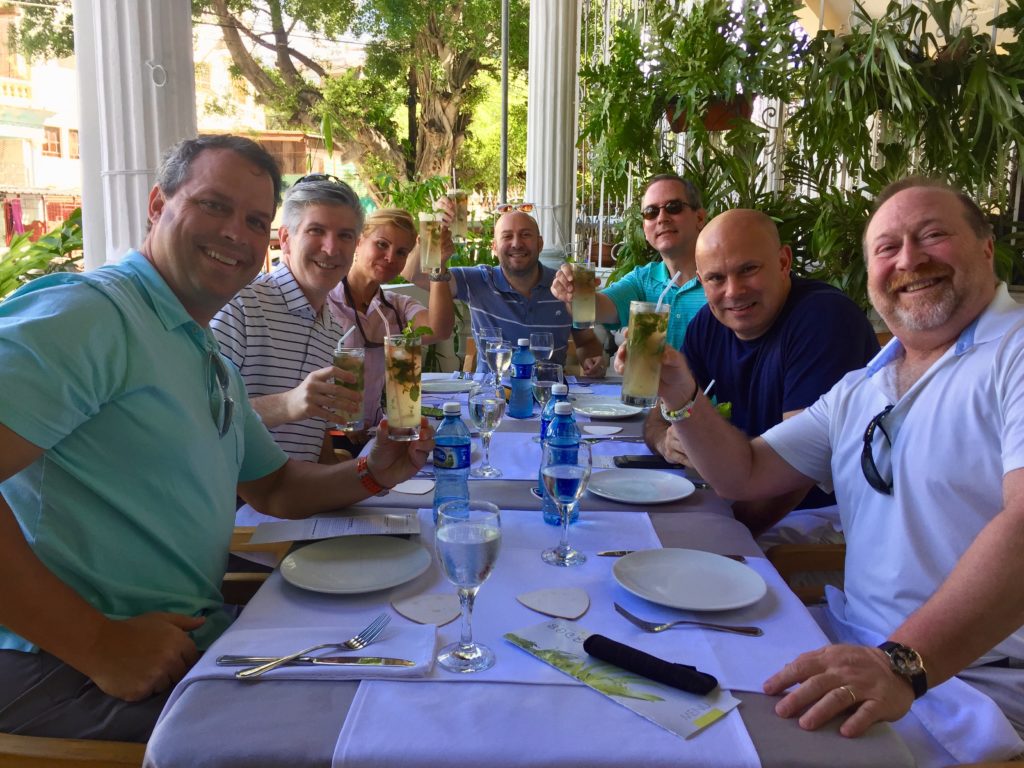
Speaking of small businesses… This was the first group I’ve led under Trump’s new restrictions. Here we’re enjoying mojitos at Grados, a new restaurant launched by up-and-coming chef Raulito Bazuka. It just opened a couple months ago, and he’s anxious for the business to build some momentum. At the top of this page, Raulito is posed with one of our group as he serves the lunch. A day with a bunch of customers is a good day for any entrepreneur!
The third big change was in the mindset of the Cuban people. For decades, the government has blamed their weak economy on the U.S. embargo. Whenever Obama announced changes towards normalizing the Cuba-U.S. relationship, Cubans imagined that the conflict was finally headed towards a resolution. And Americans were coming in droves, lifting the entire Cuban economy. So Cubans were feeling elated, grateful, and optimistic about the future. Every traveler who visited Cuba with me during this period heard their excitement.
From this place of optimism, many Cubans invested their savings in tourism-related businesses. They bought a property and made it into a B&B, like a good friend of mine; or just fixed up a room of their home to rent. If they had the right location, maybe they turned a room of their home into a small convenience store priced for tourists rather than Cubans. Or they launched an ice cream shop, or bought up taxis to run a taxi service, or started working as a freelance tour guide. I know people who did all these things.
Even many people who didn’t invest their savings in tourism made financial decisions based on the boom. Maybe they decided to buy a house, assuming their new income would last. Or they started a business for Cubans based on the fact that everyone suddenly had more money in their pocket.
Fall 2017: Everything changes
Several things happened to take the wind out of Cuba’s sails. The first was in June 2017, when Trump announced new restrictions on Cuba travel for U.S. citizens/residents. These changes were implemented last month. Whatever the specific changes to the regulations, all the headlines read “Trump restricts travel to Cuba.” Lots of people don’t get beyond those headlines; or they read some of the details and decide to pick a simpler destination. So that had a huge chilling effect on Cuba travel.
Hurricane Irma also discouraged travel to Cuba. I saw this with my own travelers. A small part of Havana flooded; small enough that the city continued to function normally. Many of my travelers saw footage of the flooding and got scared, even wondering if they should cancel their trip. I knew better, and I convinced them we could proceed without fear. But there must be plenty of people out there who were considering a Cuba trip, saw that same footage, and didn’t have anyone like me to calm them down. So they cancelled their plans.
Finally, there’s the whole “sonic attack” storyline. No country but the U.S. has warned its citizens of any problem, and I don’t see anything to get excited about. But the U.S. issued a travel warning, and it’s been in the news. So that must have scared off some folks.
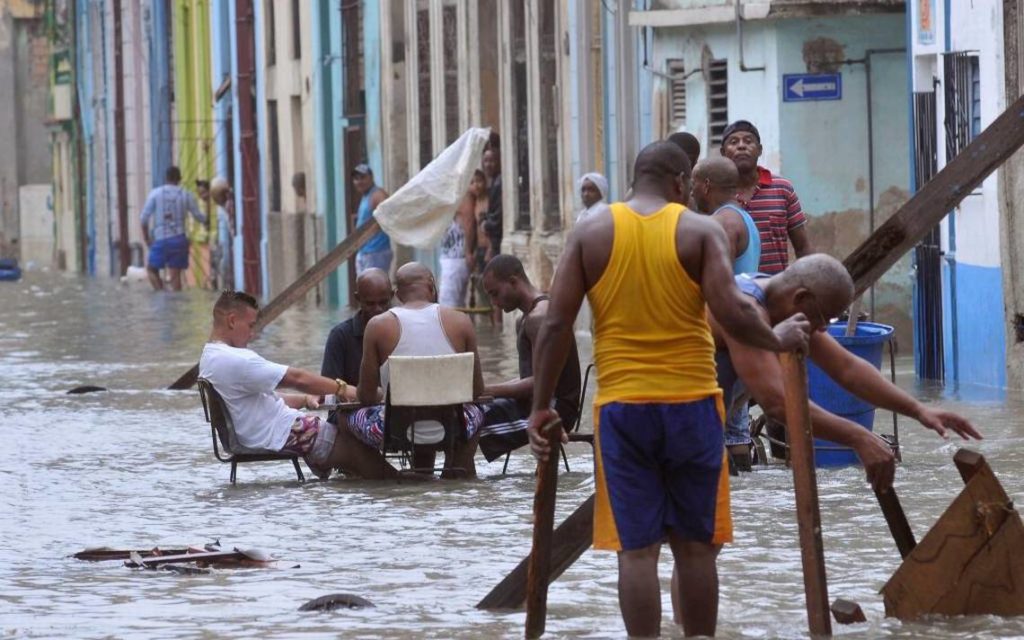
This photo shows flooding in Centro Habana, a neighborhood in Havana. While the flooding was contained to a few blocks near the coast, people saw pictures like this and assumed all of Havana was a disaster. Incidentally, this photo caused some controversy, as a group of men are sitting in the water playing dominoes. Some observers criticized them for being lazy, playing a game when there was so much work to do. Others cheered them for making the best of a bad situation and engaging in some self-care.
What’s happening now
With this triple whammy, Cuba’s tourism is way down this year, particularly tourism from the U.S. One agency I work with said they’re doing only 50% of the business they did last year. Restaurants, hotels, and B&Bs are relatively empty. One big state tour agency just laid off dozens of tour guides, and the remaining guides are underworked.
This is hitting everyone hard. Any hit to Cuba’s tourism sector ripples throughout the entire economy. But it’s hitting the private sector especially hard due to the elimination of individual People-to-People licenses. So all those people who invested their savings in small businesses are hurting. And this also affects anyone they employ. I hear all the time about Cuban friends laid off from their private-sector jobs. And if they weren’t laid off, their hours and pay were reduced. The Cuban small business owners I know are upset with the recent changes, as they expected the U.S. to continue supporting private enterprise in Cuba.
There’s also been a huge change in the national spirit. Where six months ago, everyone was excited and optimistic, today people are deflated and worried. Trump is widely seen as a villain, and I haven’t heard a single Cuban with anything good to say about him. I’ve got one Cuban friend who wanted Trump to be elected, thinking this would be good for Cuba. But that same friend built a business on individual People-to-People travelers. Six months ago, he was flying high… but these days, he’s not doing much business and isn’t excited about Trump.
What’s to come
I’ve been thinking a lot about what’s to come. Cuba spent a year or two as one of the hottest destinations in tourism, and suddenly that all fell off. I honestly don’t expect it to get so hot again. And while I expect things will improve some, I don’t expect that to happen quickly.
Of course, for the sake of everyone I know who depends on tourism, I hope I’m wrong.
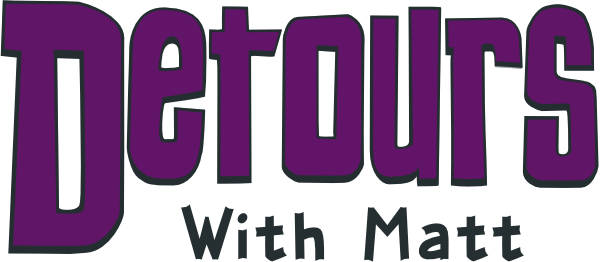
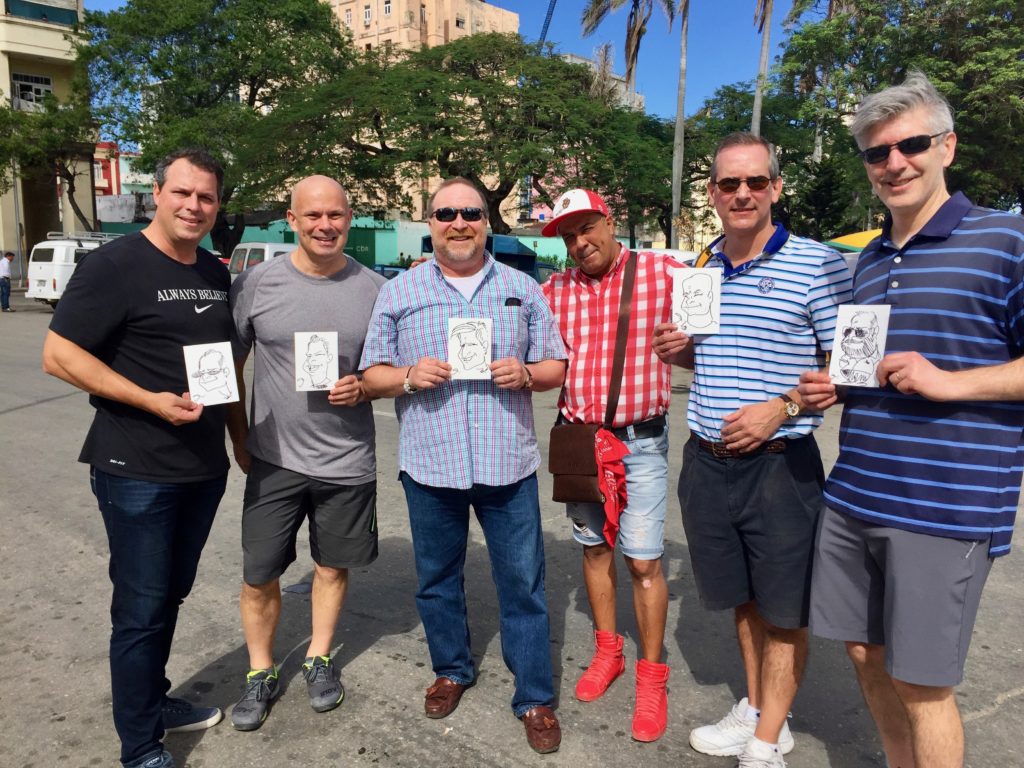


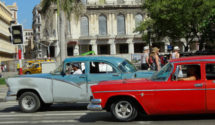
Write Your Comment